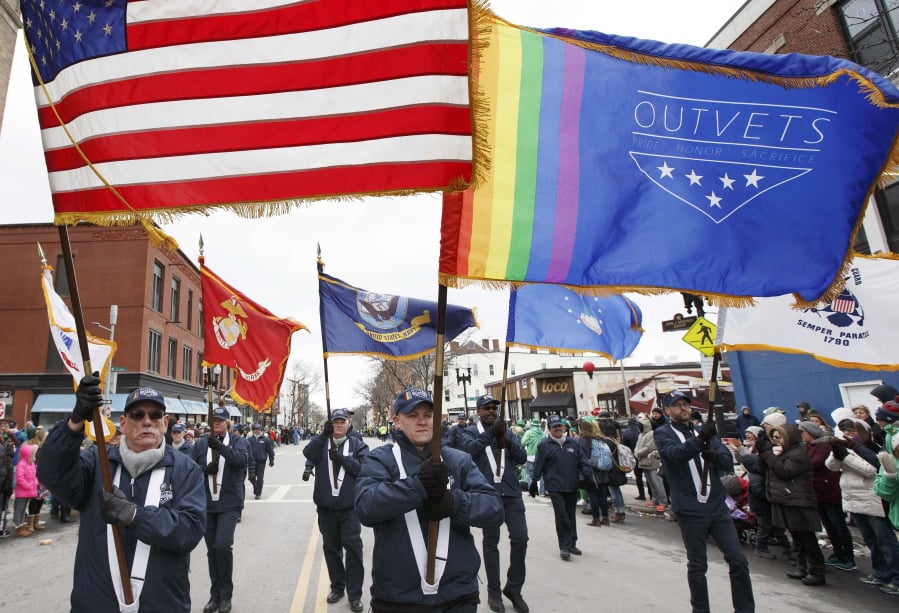BOSTON — Boston’s popular St. Patrick’s Day parade is all about veterans — but not all who’ve served in uniform will be allowed to march this weekend.
Parade organizers say new leadership of the South Boston Allied War Veterans Council, which runs the annual event, marks the beginning of a new era of inclusion. The council drew furor nationwide for banning gay veterans from marching before relenting in 2014 and letting them participate.
But it has refused to accommodate Veterans for Peace, and the anti-war group won’t be allowed to walk in Sunday’s parade. Its applications to participate have been denied since 2011, despite support from Democratic Boston Mayor Marty Walsh, Police Commissioner William Evans and sympathetic lawmakers.
“No soldier is ever left behind. That’s a message the Allied War Veterans Council didn’t receive,” Veterans for Peace coordinator Pat Scanlon said, asserting that all veterans ought to be honored for their service.




